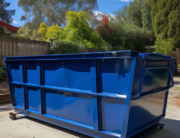How To Maintain A Skip Bin?
Keeping Your Bins Tidy and Safe
Are you tired of dealing with overflowing and dirty skip bins?
Do you want to improve your wide range of waste management business?
Proper skip bin maintenance and cleaning are essential for safety, hygiene, and compliance reasons.
Skip bin experts will guide you through skip bin hire service maintenance best practices so you can keep your bins in tip-top shape.
We’ll cover cleaning techniques, maintenance care schedules, potential hazards, and tips for green waste type reduction.
Follow along for cleaner and safer affordable skip bin size.
Why Bother Cleaning Skip Bins?
Spring cleaning dumpsters sounds about as fun as a root canal. But doing it regularly actually makes life easier for you AND your professional team. Here are just a few reasons it’s worth the effort to keep your residential property and office clean:
- Healthier Work Environment: Well-kept bins prevent gross odors, contamination, and vermin – making your site safer and more inviting for everyone.
- Fewer Pickups: Fix bins empty faster and need less frequent (expensive) pickups.
- Compliance: Keeping lids closed and areas tidy helps you meet most types of waste requirement projects and avoid fines.
- Safety: Grimy bins become safety hazards. Spring clean project minimises risks of pests, fires, injuries, and accidents.
When you add option up, a little bin maintenance goes a long way.
How Often Should You Empty Them?
Consistency is key when it comes to and range of size cleaning. Follow this schedule for ideal results:
- Daily: Quick daily wipe-downs and litter pick-ups prevent buildup.
- Weekly: Thorough wash down of interiors and keep odors and residue away.
- Monthly: Deep wash and sanitise bins to finish the job.
Of course, you’ll need to adjust based on how messy your bins get. But aim to empty them at least monthly. More often for heavy-use bins. An ounce of prevention keeps pounds of problems away.
The Best Way to Maintain Skip Bins
When it’s time for a deep wash, follow this simple 1-2-3 process:
Step 1: Clear the Area
Move any debris, boxes, or clutter away from bins so you can access them. Shovel, sweep, or use a bobcat to clear the space.
Step 2: Empty the Bin
Remove all garbage so you can spray down the interior. Wear protective gear like gloves and safety goggles during this messy job.
Step 3: Scrub Everything
Now comes the elbow grease. Use a pressure washer or garden waste hose with strong detergent to remove caked-on gunk. Target tough stains with degreasers too.
Finishing with a thorough rinse removes all soap residue. And your bins sparkle like new again.
For bonus points: sanitise with bleach or disinfectant spray after cleaning. This kills lingering germs and bacteria.
See? With the right tools and techniques, you can tackle even the grubbiest bins with confidence.
Skip Bin Cleaning Safety Tips
Cleaning dumpsters involves handling garbage and working with hazardous equipment. Follow these tips to avoid mishaps:
- Use proper PPE – gloves, steel-toe boots, goggles, and masks.
- Avoid traffic and moving vehicles around bins.
- Watch for sharp debris that can cause cuts.
- Take breaks and hydrate when working in heat.
- Lift properly and get help moving heavy objects.
- Keep electrical cords, bricks, and hoses neat and tidy.
With training and safe practices, your team can handle bins safely and avoid health hazards. It’s well worth taking precautions.
Reduce Unwanted Rubbish for Easier Maintenance
The ultimate skip bin service maintenance trick? Produce less hazardous waste. Here are a few tips for and skip size:
- Recycle paper, plastic, metal, furniture, and glass. Keep them separate.
- Compost food scraps and yard debris instead of dumping them.
- Donate usable surplus materials instead of tossing.
- Go paperless with electronic documents and records than paper delivery.
With less trash generated, your bins stay cleaner longer. So put on any amounts of rubbish removal and prevention hat to make your job way easier.
Conclusion
Keeping your waste bin clean is a perfect solution and a small effort that pays big dividends.
By taking the time to properly maintain and sanitise your bins on a strict schedule, you’ll enjoy a safer, tidier, and more compliant waste management program.
Equally important, you’ll create a cleaner and healthier environment for your staff and customers.
While it may not be the most glamorous task, proper bin maintenance is essential for any organisation that generates waste.
Do it regularly and reap the rewards of better hygiene, reduced hazards, environmental responsibility, and operational efficiency.
Your future self will thank you.




